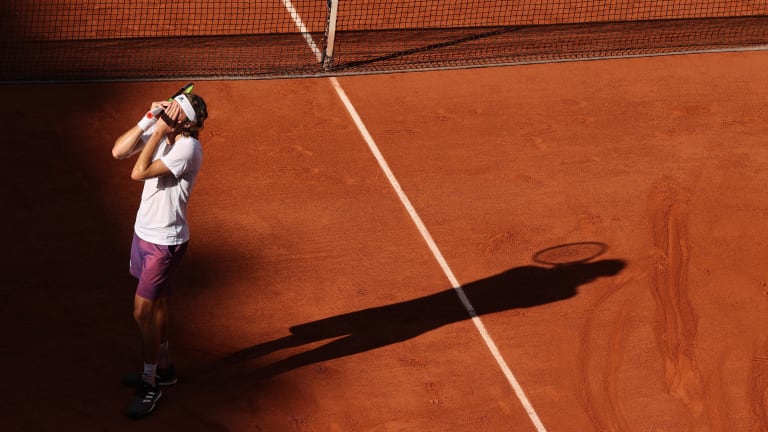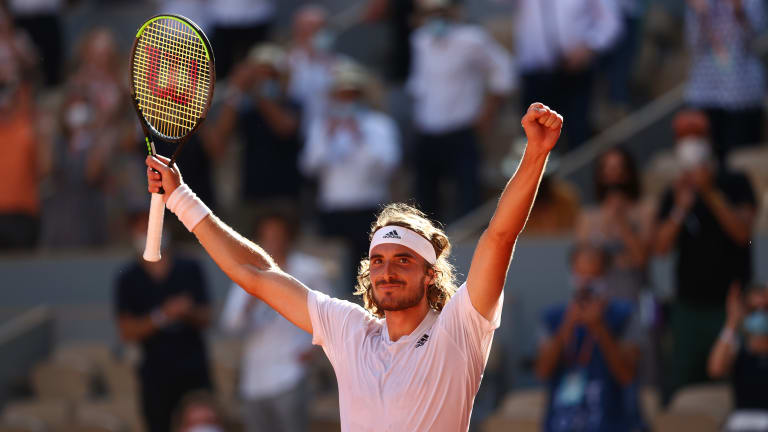Heading into his Roland Garros semifinal with Alexander Zverev, 22-year-old Stefanos Tsitsipas had already played five-setters at all four of the majors. Some were triumphs, others disasters. Today, both possibilities were present—the former early, the latter late—most vividly when Tsitsipas served at love-40 in the opening game of the fifth set, having just lost a two-set advantage.
But in the end, there came victory. Tsitsipas took three hours and 37 minutes to earn a 6-3, 6-3, 4-6, 4-6, 6-3 win and become the first player from Greece to reach a Grand Slam singles final.
Classic? Gem? Masterpiece? These words describe a match where the players compete in blow-by-blow lockstep, an exchange of query and response as the two scrape their way to the grand denouement. As both the score and the texture of many a rally revealed, that was not how this five-setter went. Instead, call what happened today a testimony—a case study of each man’s skills with racquet and heart. In the end, one man’s beat stronger just when it mattered most.
“Today if I break him the first game of the fifth set, maybe the outcome would be different.” said Zverev. “I didn’t. But still, I mean, I can't go down two sets to love against a top player like Stefanos and expect to win every single time.”
“It was a difficult match. It was a match full of emotions, full of so many different phases that I went through, said Tsitsipas. “It was just exhausting. It was difficult to handle all of these things and put them together, kind of compromise on some others.”
In tears as he spoke courtside with French TV commentator Marion Bartoli after the match, Tsitsipas gathered himself. Picture Stefanos in his youth; an ambitious young boy, living in a small Greek town outside of Athens, watching Roland Garros on television.
“My dream was to play here,” he told Bartoli. In the stands, Tsitsipas’ father and coach, Apostonos, held his right hand near his heart.

